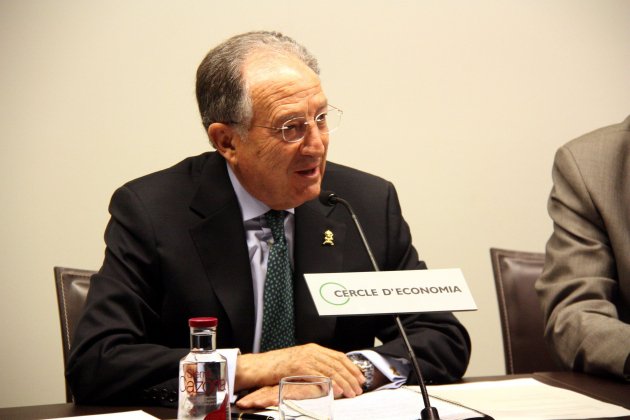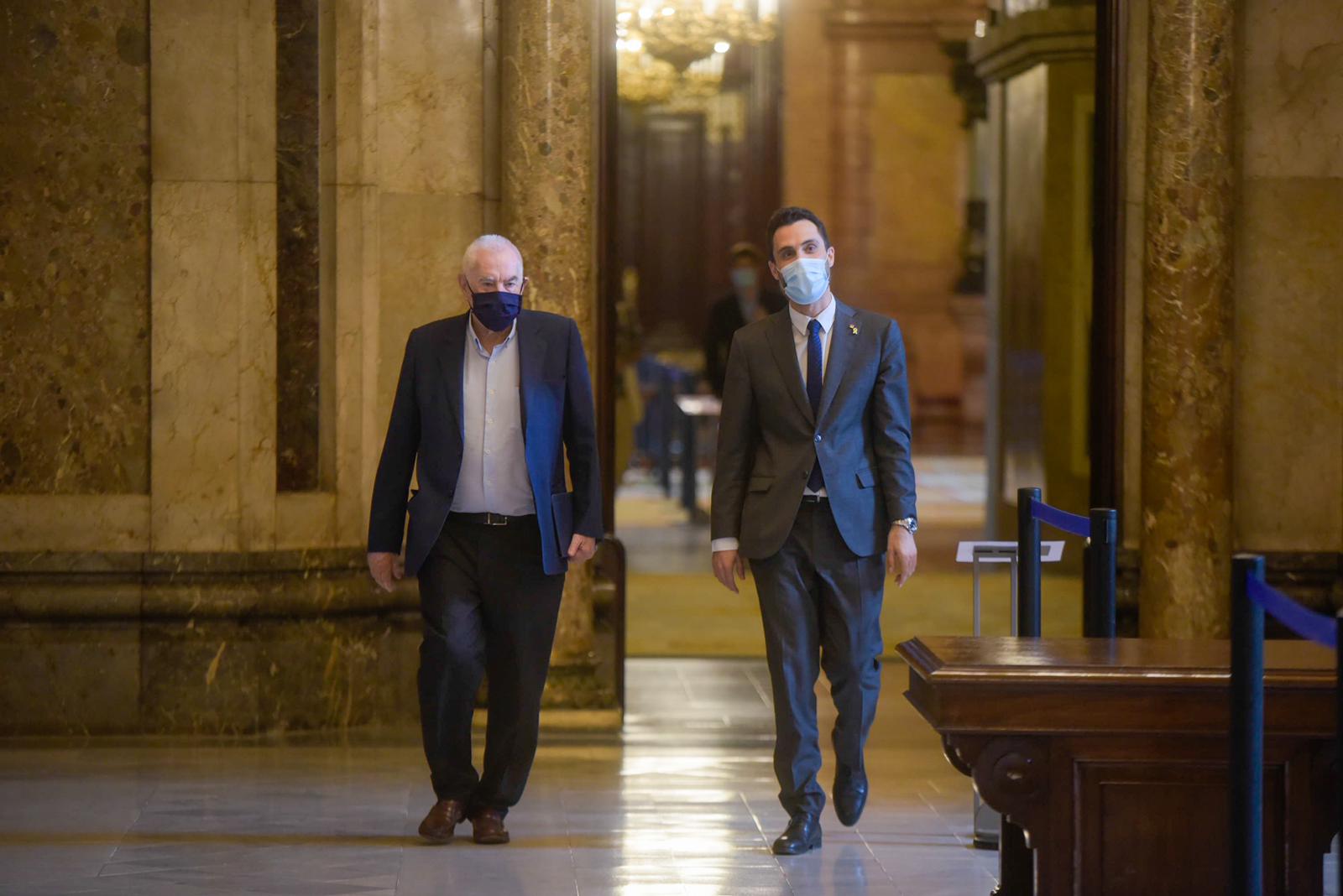They were spied on by their own country - something "never before seen in democratic Europe". The speaker of the Catalan Parliament, Roger Torrent, and the leader of the opposition on the Barcelona City Council, Ernest Maragall, have denounced to the European and global institutions - and to the human rights group Amnesty International - the internal espionage that they were the targets of through the hacking of their mobile phones. Below, their letters in English explaining what went on.
Torrent and Maragall sent copies of their complaint to the Council of Europe's human rights commissioner, Dunja Mijatović; Amnesty International's deputy secretary general Julie Verhaar; and the UN special rapporteur on freedom of expression Danny Kaye. In the letter, the two pro-independence leaders denounce an "attack on basic human rights" and state that since "the Spanish institutions may ignore these facts", they have been forced to turn to the European institutions.
In addition, they warn Human Rights Commissioner Mijatović that she could also have been spied on when Roger Torrent held a meeting with her in May 2019.
Pegasus
Pegasus is the name of the spyware program developed by the Israeli company NSO Group that was allegedly used to hack the mobile phones of Torrent and Maragall. The software can only be bought by governments and their security forces and bodies. According to an investigation published in Spain's El País and the British newspaper The Guardian, in 2019 the mobile phone of the Catalan parliamentary speaker, Roger Torrent, was the target of this spy programme designed for use to "fight crime and terrorism".
The CNI
As Vice magazine revealed shortly after the news was reported by The Guardian and El País, Spain was the first European customer of the Pegasus software: the country's CNI (National Intelligence Centre) is understood to have bought the espionage program. Thus, the two politicians decided to sue the director of the CNI at the time of espionage: Felix Sanz Roldán.

Félix Sanz Roldán, former director of the National Intelligence Centre (CNI) / ACN
When the espionage became public, Torrent called on Spain's defence minister, Margarita Robles, to make sure that the Spanish government "opens an investigation at the National Intelligence Centre (CNI) and finds out who is responsible". Torrent is convinced that it is possible to identfy the involvement of this body in his espionage, which he calls a "grave event", as "all indications point to the [involvement of the CNI]".
In addition, he also asked Robles to apply the criteria that she has always professed to believe in, such as a commitment to transparency. The Catalan speaker proposes that the CNI should submit to the questions of the cyber security & human rights research group Citizen Lab in order to "dispel doubts."
Although the date on which the CNI acquired the spy program cannot be confirmed, it is known that until 2015 the CNI and the Spanish police were customers of Hacking Team, one of NSO's competitors. The Vice article claims that Spain has been an NSO customer since that year.
Spain's interior ministry, National Police corps and Civil Guard deny ever having purchased the NSO program. For its part, the CNI simply says that "it always acts in accordance with the legal system."

